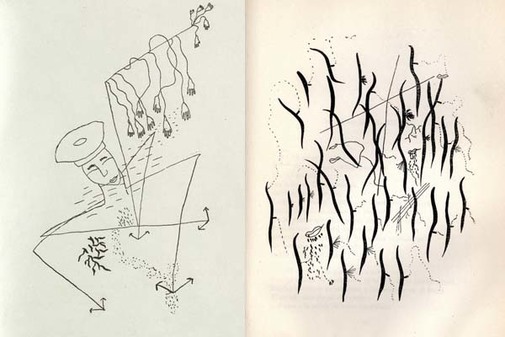Weeks before the outbreak of the civil war, by train returning the two from Córdoba, Federico García Lorca improvises in a paper a few verses for Juan Ramírez de Lucas, his last love, who say: "That cute waist, blond blond without a hat , / he sowed by my dark night / his yellow jasmine. / I love and love him so much, / that my eyes took away. " Federico was then 38 years old and just a few months later, on the morning of August 18, 1936, he was killed in the Víznar ravine by fascist minions . The letters that Federico wrote to his young boyfriend and that he kept with jealousy and secrecy until the last day of his life are one of the most valuable pieces of the exhibition Garden undone: Lorca and love , the first great show organized by the Center Federico García Lorca of Granada, who guards his work, open until the day of Kings next year.
That a poet speaks and writes of love seems like redundancy. But let Lorca do it constitutes an even greater pleonasm. And there was no author in the past century more tied to that irrationality , to that "norm that agitates equal flesh and star", nobody whose work was so wet with desire, voice, hunger, carnality, omens and pain. The exhibition, inaugurated yesterday by the acting Minister of Culture, José Girao, and by the Minister of Culture of the Junta de Andalucía, Patricia del Pozo, delves into three words on which Federico thought and wrote relentlessly until his early death. weeks after the start of the 36th war. Love, desire and sexuality are three next concepts, but of different meaning that he enjoyed and suffered in similar percentages.
The exhibition is curated by the American Hispanic Christopher Maurer who, in statements to this newspaper, recalled how Federico was never interested in adding theories to love. "He used to repeat insistently: 'I just want to love and be loved' and his work, seen and analyzed with perspective, is a reflection of that simple effort," says Maurer.
Then there is the title of the exhibition, which is a brilliant finding: " Federico sees the love encounter in the romantic gardens, " the curator of the exhibition maintains, "a sort of space of literary creation where his homoerotic desire finds rest and the men to the what I love". The garden is an elegy of Lope and recalls that delicious phrase by Pedro Soto de Rojas that recalled "the open gardens for few." That is a broken garden has to do with the direction that took his life, his tragic end, that "I put two shots in the ass by fag" that vomited those terrible days a well-known character from Granada.
Lorca and love occupies all the exhibition halls of the center located in the Plaza de la Romanilla, in the shadow of the Cathedral of Granada. In 1937, Vicente Aleixandre said of him: "He loved very much, a quality that some superficial ones denied him. And he suffered for love, which probably nobody knew." The five rooms in which the exhibition is divided are another five great moments of his life. The first recalls his beginnings as a poet between 1916 and 1918, the impossible or unrequited loves and the birth of a social conscience that will accompany him during the next two decades. The second room details his relationship with Salvador Dalí, which the painter described as "an erotic and tragic love for the fact of not being able to share it" and that the poet always had as one of the most passionate and sincere of his life. In the third room, Frederick marches to New York, composes his Poet , the famous Ode to Walt Whitman and his brave homoerotic drama entitled The public . The last two rooms are dedicated to his years in Madrid, his maturity as a playwright and the relationship he had with Rafael Rodríguez Rapún, perhaps the love of his life, which accompanied him in the early thirties with the theater group of La Barraca.
Federico said of himself: "I am a man made to desire and not to get." And before they killed him, he said: "May the hank never end, I love you." Lorca always disdained the homophobia he felt so close and the murmuring about his desire for men. He only took care of himself so that his family did not suffer because of him. The author of La Casa de Bernarda Alba never thought he would die with a shot, one very early morning in a place on the outskirts of his Granada. Before entering the house of the Rosales in those black days of the beginning of the war, Federico was to remember his "Sonnets of Dark Love" where the literature of the Renaissance, from Petrarca to San Juan de la Cruz, the Arabic poetry that so close had the long shadow of Santa Teresa, the permanent vision of the beloved and that irrevocable desire to turn each verse of his into a legitimate and sincere act of love. As a testament, Federico left written: "I want to sleep the dream of apples, / move away from the tumult of cemeteries. / I want to sleep the dream of that child / who wanted to cut his heart on the high seas."
According to the criteria of The Trust Project
Know more- culture
- literature
- novel
The Paper SphereThe Great Hunt
The Paper SphereAdelanto from the first chapter of Pérez-Reverte's new novel, 'Sidi'
The Paper Sphere Aurelis Uribe: it rains on Santiago

